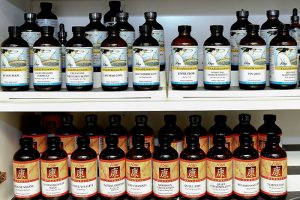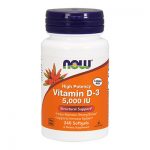Every year around this time, we begin to notice the transition from summer to fall. Cooler and damp weather can increase our likelihood of getting sick. Under normal circumstances, we are taking measures to get build a strong immune system and ready for the flu and cold season. With COVID, this becomes essential!
When strengthening our immune system, it is important to take care of our whole body! Much like a tree, we have to take care of the root of our body as well as all the branches! 
There are a number of ways in which we can do this. These include acupuncture, Chinese Herbal Medicine, vitamins and supplements!
Acupuncture builds and strengthens our immune system and builds a strong foundation to prevent illness and promote wellness. Acupuncture is based on the theory that Qi energy is our life force and circulates throughout our body from birth until death. We can influence our qi by the food we eat, the air we breathe, our emotions, 
Traditional Chinese Herbal Medicine: We are learning a lot from Traditional Chinese Medicine about integrating Chinese herbs into coronavirus treatment. In China, Jade Windscreen formula is one of the most commonly used formulas for coronavirus prevention. In Traditional Chinese Medicine, treatment of an existing respiratory infection is tailored to the individual symptoms. As practitioners of TCM, we can carve out a recommendation and create a customized herbal treatment plan for each individual.
I recently connected with Dr. Jen Green, Naturopathic Doctor at Emcura Integrative Medicine in Bloomfield Hills she shared her recommendations for supplements to support and strengthen our immune system. We are grateful for her support and input In writing the following recommendations:
Vitamin C: Common doses in research on viral infections are 1-2g daily for common colds.[i] If you take too much Vitamin C at one time, you can get diarrhea. Therefore, if you want to use higher doses for a severe infection, it is better to take vitamin C 1000mg every 1-2 hours for 6 doses spread out throughout the day.
Vitamin D: Vitamin D is an extremely common deficiency in Michigan because it comes from sunshine. It is an important and necessary nutrient for supporting the immune system. Numerous studies have shown that routine Vitamin D3 supplementation reduces the risk of colds and flu.[ii][iii] For prevention of respiratory infections, effective doses range from 400 IU/day to 2000 IU/day.[iv] Vitamin D3 has been proposed as both a preventative agent and treatment support for covid19.[v]
Zinc: In an observational study in NYC, the addition of 50mg elemental zinc twice daily for five days to hydroxychloroquine and azithromycin did not impact ICU duration, but did increase the frequency of patients being discharged home, decreased the need for ventilation, decreased admission to the ICU, and lowered mortality or transfer to hospice.[vi] In the elderly and in children, zinc is helpful in reducing the risk of pneumonia and common cold and the incidence of respiratory tract infections. [vii] In children, zinc 20 mg/day speeds recovery from severe pneumonia.[viii] Often available as lozenges, zinc can help to reduce the frequency of infections as well as the duration and severity of the common cold when taken within 24 hours of onset. Safety notes; As an adult, do not take more than 60mg zinc daily ongoing because high doses of zinc can become immune suppressive.[ix],[x] Always take zinc with food because it can cause nausea on an empty stomach. Zinc deficiency is more common with vegans/vegetarians, people with chronic diarrhea, and cancer patients. Zinc interacts with some antibiotics such as cipro and doxycycline.
Elderberry: Elderberry is a gentle safe herb especially indicated for children to prevent viral infections. In an animal study, elderberry lowered coronavirus levels[xi]It is useful for flu prevention and it shortens the length of time that people are sick with influenza.[xii]
Probiotics: Probiotics contain “good bacteria” that not only support the health of the gut but also influence immune system functioning and regulation. Studies have shown that probiotic use over the winter months can decrease the number of respiratory infections, particularly in children[xiii] and the elderly[xiv]. Coronavirus does infect the digestive tract, and some hospitalized coronavirus patients with digestive symptoms in China were found to have lower levels of Lactobacillus and Bifidobacterium.[xv] Safety note: There are huge quality control issues with probiotics because they need to be refrigerated or specially encapsulated to keep them alive. The majority of brands (especially ones not in the fridge) are mostly dead bacteria instead of live bacteria.
Now is the perfect time to get started! Taking good care of yourself can help you take good care of those around you!



Leave a Reply